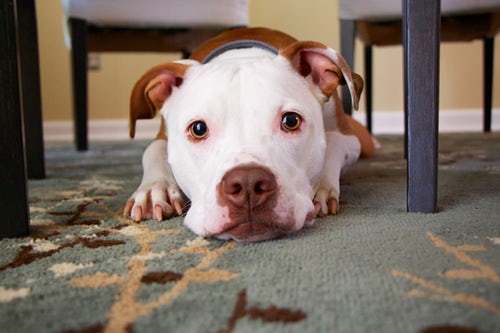Your ultimate guide to all foods that can harm your dog, toxic foods, allergies due to food, and dangerous foods for dogs.
you are what you eat, and our pets are no different. their food is the major contributor to their energy levels, health, life longevity and happiness.
so how do you know you are not putting your dog at risk by giving him dangerous foods? or even poisoning him/her?
Table of Contents
5 Toxic and dangerous foods for dogs you need to watch out for
1.) Chocolate

We now know the one thing that is wrong with chocolate, we can’t feed them to our dogs.
chocolate is dangerous for your dog as they contain a substance called theobromine that is a simulant. And its also poisonous for dogs
and different types of chocolates contain different amounts of this sustains.
In other words, some chocolates are more poisonous than others.
but that doesn’t mean some of them are safe to consume, you must not feed chocolate or any products that contain chocolate based ingredients to your dog
2.) Avocado
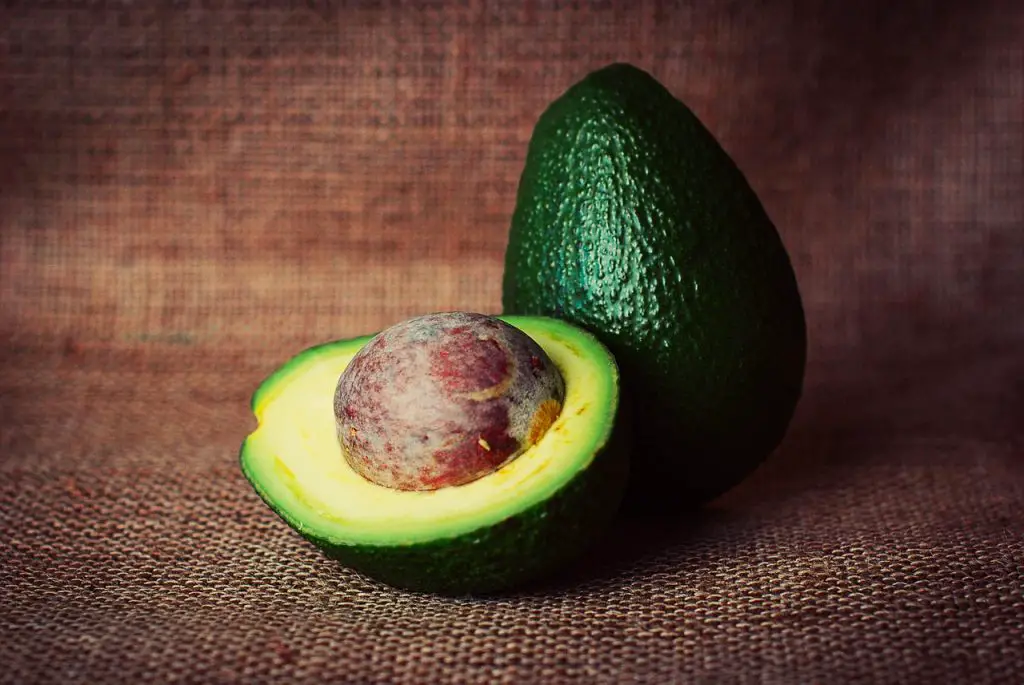
Avocados contain a substance called persin. that is when consumed in large amounts can cause diarrhea or vomiting for dogs
not only the avocados themselves are dangerous for dogs, but also the avocado plant and seed are just as dangerous
so you need to be careful not to let your dog near any avocados, or any food containing avocados.
3.) Alcohol

you may think that there is nothing wrong with having your dog take a sip or two from your favorite beer or wine,
but in fact alcohol is dangerous for dogs even when consumed in small amounts.
so even small amount of alcohol would have significant side effects on your dog like diarrhea, vomiting, depression to the central nervous system.
and in severe reactions it can cause difficulty in breathing or comas.
you must never have your dog near any alcoholic substances, even if contacting small percentages of alcohol.
4.) Xylitol
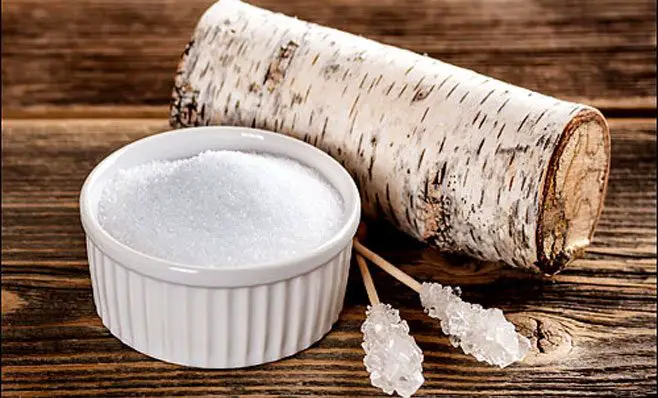
you probably wonder what exactly is that? thinking if you don’t know what it is, then you don’t have it and you are defiantly not feeding it to your dog
well this is actually a very common additive to most foods. and it is basically an artificial sweetener.
so most human food products for diets, or sugar-free would contain xylitol
so why is it very dangerous for dogs?
if your dog consumes any food that contains xylitol, his body’s reaction would be to release insulin.
and this is a very dangerous reaction as it would severely lower his sugar levels leading to hypoglycemia. and that can be fatal
make sure your dog stays clear from all human diet or sugar-free products.
5.) Onions
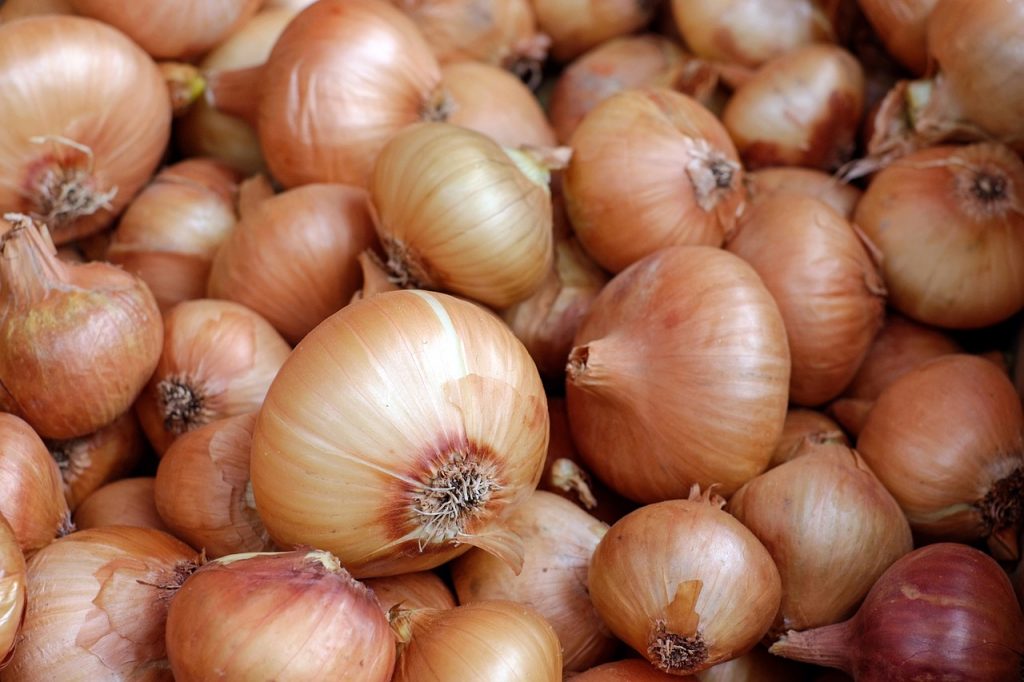
onions are toxic to dogs, and that is in all their formats, raw, cocked, dried, powdered.
even though if a teeny tiny amount was consumed on accident, there is a chance your dog would be okay.
but that doesn’t mean its okay for him to eat it at all, even when served in small amounts.
onions would cause gut irritation upon immediate consumption, and once digested they can damage the dogs’ blood cells, which will cause anemia.
so, any signs of poisoning due to onions would then appear after a couple of days, but that doesn’t mean you have to wait on it.
if you caught your pet consuming onions, then you need to rush him over to the vet right away, same in case of any toxic food consumption
how do you know if your dog is suffering from food poisoning, or if he is badly affected by the food you are serving him.
what if he is allergic to the food you keep serving him over and over again?
in this article we will guide you through such scenarios, answering the above questions and providing you with a set of actions you can follow to help your dog
- Starting with Food Allergies.
- Then Dangerous and toxic foods for dogs.
Food allergies for dogs:

First off lets tackle food allergies,
dog food allergies, same with humans, are rather tricky to deal with, as there is no one straight answer that is applicable to all dogs.
therefore, each and every dog is different, so instead of coming up with a one answer fits all, here what we will talk about in this section:
- Dog breeds prone to allergies
- Common food allergy triggers
- dog Allergy symptoms
- how to deal with food allergy situations
Dog breeds prone to allergies
some dog breeds are more prone to allergies than others, as research shows,
- Bichon Frise
- Brussels Griffon
- Bull Terrier
- Golden Retriever
- American Pit Bull Terrier
- Labrador Retriever
- Maltese
- Boxer
- Cocker Spaniel
However, this doesn’t mean that all dogs from such breeds are allergic, just that the chances of dogs with these breeds have higher chances of experiencing allergies.
besides, if your dog doesn’t belong to these breeds, this doesn’t mean he/she is immune to food allergies.
Common food allergies triggers
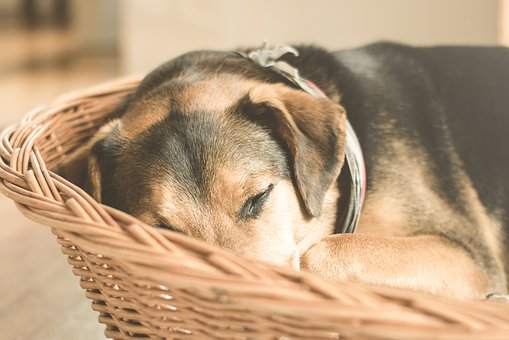
so whether your dog’s breed is more prone to food allergies or no, there is still a chance they could be affected by certain foods that trigger allergies.
Food items that are likely to trigger allergies
- some dairy products such as; milk, yogurt, or cheese
- some grains: wheat and soy
- Meats: beef, chicken, pork, rabbit
- fish
if your dog is allergic to one of the above items, there is a chance that he is allergic to other ones as well.
Allergy Symptoms:
how do you know If your dog is having an allergic reaction to the food he is eating?
there are certain symptoms you need to watch out for, once you notice any or all of the below symptoms
- Ear Infection
- Diarrhea
- gases
- itchiness
- bloating
- skin rashes or red bumps
- vomiting
- swollenness in eyelids, ears, or lips
- trouble with breathing
How to deal with food Allergy Situations
1.) Check with the Vet
if you notice one or more of the above symptoms, then the next step has to be immediate vet consultation or visit.
some symptoms are more serious than others, like trouble in breathing or inability to breath. this would be an emergency situation and you need to contact an emergency animal hospital immediately
luckily this is the least common of the allergy reactions or symptoms. so there is a small chance your dog might experience this.
yet to be safe make sure you have access to an emergency animal hospital line.
your dog must be checked by a specialist to confirm that indeed he is experiencing an allergic reaction to food, as many diseases would share these symptoms.
2.) Testing and Elimination techniques
now, if your vet confirms that your dog is indeed having an allergic reaction to their food, then they might undergo a testing phase, to find out exactly what ingredient they are allergic to.
the most common method would be serving your dog one protein ingredient and one carbohydrate ingredients for a certain period to see which ones are they allergic to
but this step must be done under the supervision of your vet or a dog nutrition specialist.
Watch out for the Toxic and Dangerous Foods for dogs you are serving

Okay so we are all familiar with the strange relationship between dogs and leftovers.
All you need is probably just one puppy eyed look from your dog, and you would simply hand him a piece of what you are eating.
I mean if humans can eat it, then dogs can eat it too right?
We couldn’t be more wrong actually
As a matter of fact, we are so wrong that some human food would not only cause digestion issues, but actually place their health at risk.
You will find that most of the toxic or dangerous foods for dogs are actually popular foods that we enjoy and are rather healthy and very nutritious.
But that is for people, for pets and in our case dogs, the case couldn’t be more different.
So the key to prevent that, is paying attention to what exactly we are feeding our dogs
And better yet, what we must not serve dogs with at all.
Through this section we will list out:
- common food items that are considered dangerous foods for dogs,
- the risks and potential harms they cause dogs,
- Wrapping up the section with how to act if your dog accidently eats them.
Signs your dog will show if he ate dangerous or toxic foods.

there are certain symptoms that will show on your dog in case of food poisoning.
but you should also note that food poisoning symptoms are not unique, as other illness would share the same symptoms with food positioning
you must always get back to your doctor to confirm what is actually wrong with your dog.
now the symptoms could be one or more of the below:
- Vomiting
- diarrhea
- lack of coordinated movement
- sneezing and coughing
- shaking
- seizures
- difficulty breathing
- fainting
- slow movement or extreme excitability
you need to watch out for any unusual behavior, as clear poisoning signs might take days to show
What should you do if your dog is showing food poisoning signs?
1.) Take your dog to a safer place
make sure he has no access to any toxic materials so his case doesn’t get worse
and if you have other pets or animals, make sure they are nowhere near the poisonous food that affected your dog
2.) Immediately call your vet
and if they are not picking up, then you must contact a veterinary hospital or the 24-hour emergency hotline for pets
you must act immediately as time is really critical and the longer you wait the worse your dog can get

